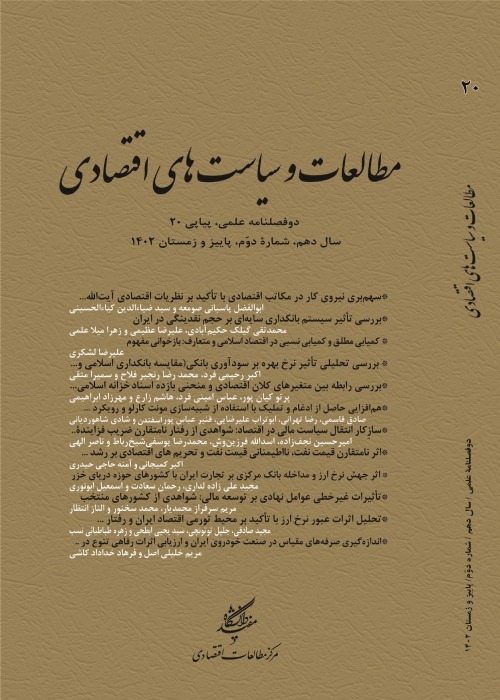The Nonlinear Effect of Financial Reforms on Labor Productivity in Selected Developing Countries: Markov Switching Techniques
Financial reforms, due to make a structural difference in quantity and quality of services provided in financial markets, is able to explain an important part of difference in growth and development between countries, and without any doubt, these changes effect on the labor productivity. In this study, had been paid to examine the nonlinear effect of financial reforms indicators (financial liberalization, financial development and financial integration) on labor productivity in 15 selected developing countries during the period of 2006-2017 with using of Markov Switching econometric technique. The results of examines show that the financial liberalization index (foreign direct investment) in both regimes has a negative effect on labor productivity. Financial development indicators (banking credits and the value of the trading stocks) also have a negative effect on labor productivity in first regime, but in second regime, we see a positive relationship. Finally, the Financial Integration Index (total of foreign portfolio investment and foreign direct investment on GDP) in both regimes has a positive effect labor productivity. Therefore, according to the results, it can be acknowledged a significant part of the labor productivity depends on financial reforms, so it seems necessary to provide more and more grounds for strengthening and expanding the indicators of the financial reform in above societies.


